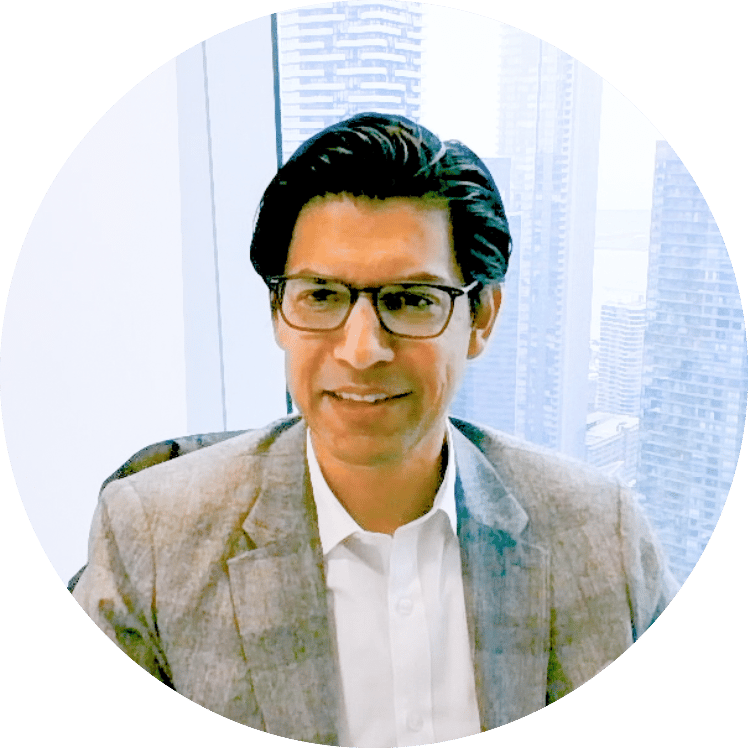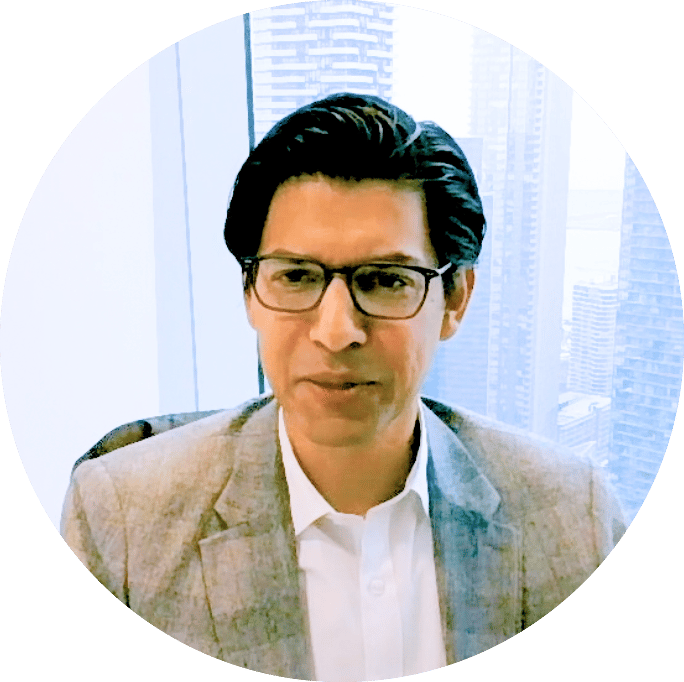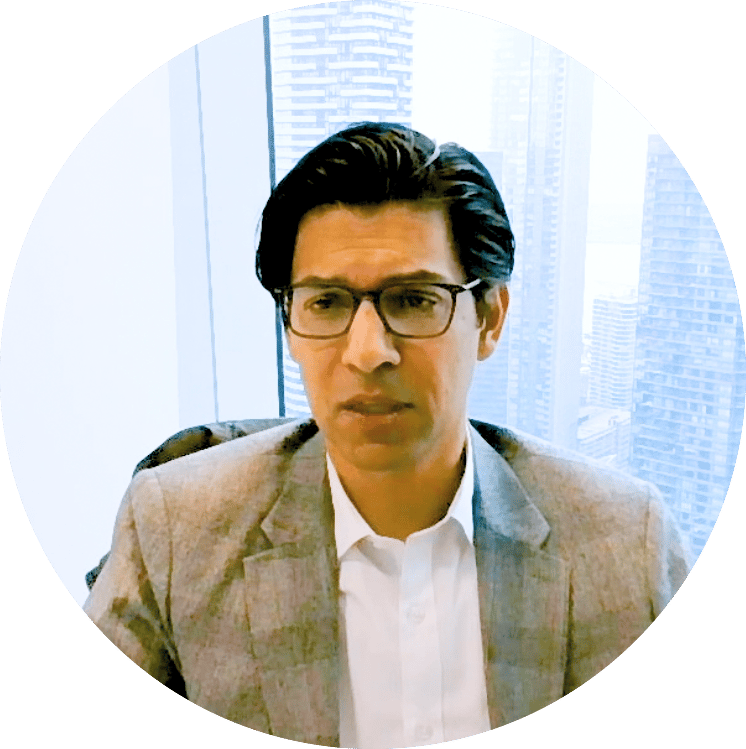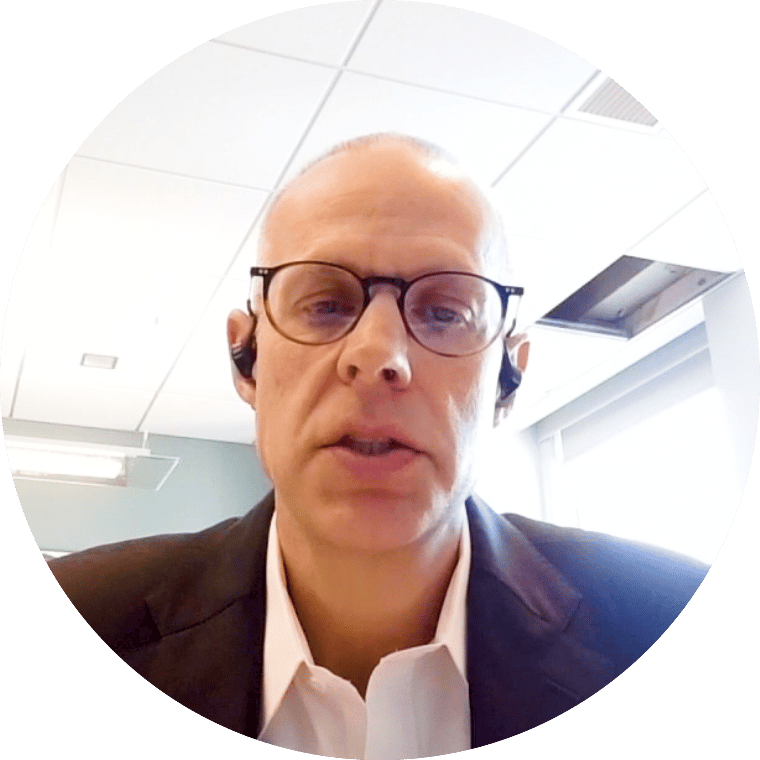Navigating Volatility: The Case for Tactical Alpha
“Portfolio construction is the dominant process input that will determine the ultimate success or failure of your portfolio, yet it’s often less sexy than individual investments.” — Scott Radke, CEO and Co-CIO, New Holland Capital.
In an era of economic flux and market volatility, alternative investments have emerged as a cornerstone of portfolio construction, offering the potential for diversification, resilience, and enhanced returns. Yet, navigating this terrain requires expertise and a nuanced understanding of its complexities. Ash Lawrence, Head of AGF Capital Partners, and Scott Radke, CEO and Co-CIO at New Holland Capital, share their thoughts on the landscape, the recent launch of AGF NHC Tactical Alpha Fund and how to navigate alternatives strategies.
The State of the Market: A Catalyst for Change
“We might see a different return environment for public equities,” Lawrence observes, pointing to post-GFC monetary stimulus as a bygone era. The days of easy gains and low volatility are over. With public equity returns concentrated in a few high-performing sectors, diversification is critical.
Ash Lawrence: There is generally a view that in the mid to long term looking forward, we might see a different return environment for public equities versus looking backwards for that same five- to ten-year period. We may, for the near term, you know, election results in the U. S. and some other things, see a bull run continue.
But I think generally no one is expecting the rate environment and monetary stimulus environment to return that we saw in the almost decade after the GFC. And I think in that context, when coupled with some of the concentration that you're seeing in the public markets and where that return attribution is coming from, it's not really a broadly diversified high performing public equities market right now. It's quite narrow in terms of where the returns are coming. Again. What you alluded to at the beginning, um, starting for for investors to start to think about how do I reallocate for the future, my, you know, maybe it's a basic 60 40–we'll just start with that assumption.
How do I reallocate for the future if that's my expectations on public equity returns? How do I get that diversification? And if I do think public equity returns are going to moderate to some degree over the long term, how do I reallocate so I'm not just mimicking that, in another asset class, which again, the sort of lower correlation asset classes, that's sort of the environment we think about.

Radke echoes this sentiment but highlights a silver lining: “It’s a particularly fertile time for hedge fund strategies.” Increased volatility across rate, equity, and credit markets provides “the fuel that helps with alpha generation.” Strategies like merger arbitrage, event-driven plays, and commodity-relative value trading are poised to thrive as corporate activity accelerates and historical market relationships are disrupted.
Scott Radke: It's a particularly fertile time for hedge fund strategies.
So the pickup in volatility, whether rate vol, equity vol. Generically, that's good for hedge fund strategies. That's the fuel that helps with alpha generation. And the change in administration in the United States, which has served as a catalyst for at least some of that portends a different environment than the one that we've had and one that at least historically has, has been a good opportunity.
So, just taking two examples, reduced market regulation, I think bodes well for strategies like merger arbitrage and event related strategies. There's just a lot of pent up demand for corporate activity that in some ways, regardless of how the election got resolved, was going to come out. So similarly, we expect a greater initial public offering issuance, secondary issuance.
So, strategies that play in the equity capital markets area, are likely to perform better going forward than they have in the recent past. Another example would be tariffs and just the general trade dynamic shifting that has tended to be good for commodity relative value trading, as historical relationships were disrupted, equity and credit volatility relative value would be another example where this sort of environment tends to be a bit better for market practitioners. So, we're more confident with respect to the breadth of alpha generation than we have been for a while.

The challenge lies in reallocating portfolios to capture these opportunities while mitigating risk. “How do I reallocate for the future?” Lawrence asks rhetorically. The answer lies in alternatives, which offer a way to diversify and buffer against public market downturns.
Ash Lawrence: The AGF NHC Tactical Alpha strategy that Scott's teams run, we actually found really interesting for a couple of reasons.
It has many different layers or stripes when you think of where it could fit in a in a portfolio allocation. So if you start with the basic assumption, let's say someone is running a 60/40 equities fixed income allocation, there are features of this product that are more akin to equities.
It will capture that long term equity return on average over a long period of time and, and provide that alpha, which Scott's team has spent so much time trying to identify within the managers that they select. And so you could see that coming out of, say, an allocation out of the equity side of someone's portfolio.
But you also see certain aspects that I'll generally put under the risk mitigation area, which sometimes people are using their fixed income allocation to sort of reduce the risk a bit and steady out some of that volatility. Well, the way Scott and team put together the portfolio in this product produces some of those same characteristics in terms of lower vol than you might see from equities in times of stress, you're typically going to see lower drawdowns within this product. And so you start to see some aspects which are more about, especially in the, in the world where downside is coming to the forefront, where it starts to be a buffer to your portfolio as well. So you could see someone saying, "I'm going to take a little bit of my equities allocation and maybe a little bit of my fixed income allocation, and maybe I'll slot it into this bucket. "

The Tactical Alpha Edge
At the heart of the conversation was the launch of AGF NHC Tactical Alpha Fund, a multi-strategy approach designed to blend return generation with diversification. Radke emphasizes the importance of assembling a portfolio of strategies that not only deliver returns but also mitigate downside risk in adverse markets.
This fund, described by Radke as a “utility player in baseball,” offers a unique combination of attributes. Its ability to capture upside potential while buffering against downside risk makes it a powerful tool for advisors seeking to stabilize portfolios amidst uncertainty.
“The launch of the fund is also the next step in our partnership with NHC as we continue to build and grow our alternatives business and diversify our capabilities. It is exciting to bring to Canada a product that gives accredited investors access to NHC’s institutional caliber and extensive expertise in absolute return investing,” adds Lawrence.
“It’s not just about generating returns; it’s about doing so in a way that aligns with overarching risk objectives,” Radke explains.
Scott Radke: It's a bit like a 'utility player' in baseball.
It's this combination of return generation and diversification, which is a unique characteristic–and certainly there are assets you could acquire, which should have higher returns on average over time than hedge funds, but they offer less diversification. So it's that balance, which is why with the clients who have come into the tactical alpha strategies–like, that's what they're looking for because there just isn't much else out there that fits that dual role.

The Blueprint for Success: Multi-Strategy Mastery
Both Lawrence and Radke stress the critical role of manager selection in building resilient portfolios.
Radke’s approach to manager selection blends quantitative rigor with qualitative judgment. “We’re looking for experienced portfolio managers who align philosophically around risk and have a track record of generating exceptional returns,” he says. Beyond the numbers, it’s about identifying partners who demonstrate resilience during challenging market conditions.
“It’s a people business,” Radke notes. “Judging how someone will behave when the chips are down is a different matter entirely.”
Scott Radke: It's really a combination of a qualitative and quantitative process. We're looking for experienced investors who have demonstrated the ability to generate exceptional returns in a manner which is consistent with the risk objectives for the portfolio in which they'd be included.
But that's table stakes. From there, you're making more qualitative judgments about them as people and their business and the robustness of that, the durability of their investment process and how that matches up with the market opportunity that we anticipate. And it's really that culmination of those characteristics that ultimately make a determination as to whether someone is a good fit for the portfolio.
But you also need to think about what's already in the portfolio. So adding another strategy which is just like something you already own is not particularly additive. Better to go search elsewhere. So it's really harnessing the totality of the conclusions from both the more quantitative and qualitative judgments that we're making, that lead us to a go–no go decision.
A lot of money is made and lost at those most difficult moments and it's tricky to make those assessments again–we're back to the sun shining versus raining, where it's easy to be calm and rational, when things are going okay. Judging how someone's going to behave when the chips are down is a different matter entirely.

Radke’s focus on niche, less trafficked strategies has been a hallmark of New Holland Capital’s success. “Crowdedness tends to be a bad characteristic when markets go south,” he explains. By concentrating on a variety of less-crowded esoteric opportunities, Radke’s team has carved out a unique space in the alternatives landscape, enabling their tactical alpha strategy to stand apart from the competition.
Scott Radke: We've always tended to concentrate on more esoteric strategies, niche investment areas, which sometimes are less scalable.
And that has given us the reputation as the guy to call when you have something that's a little off the beaten path that we're prepared to roll up our sleeves and do the diligence on a less conventional area that's in the belief that there's greater return potential in these less trafficked areas as well as better robustness from a risk perspective.
Crowdedness tends to be a bad characteristic when, when markets go south. So being a little bit to the side of that tends to be beneficial. So that's the other side of it, which is proven to be useful, in that obviously there's a lot of competition for talent, but seeking something that's a bit different than some of our competitors allows us to get different looks than they might.

Lawrence echoes this commitment to specialization, pointing to AGF Capital Partners’ multi-boutique structure as a model for fostering independence while ensuring alignment. “Specialists typically outperform generalists when it comes to alpha generation,” he says. This structure allows AGF Capital Partners to provide its affiliate managers with critical resources—whether distribution networks or quantitative analytics—without compromising their independence.
Ash Lawrence: We started on this strategy a few years ago and we, we designed it actually to, to exactly hit on, How do we get a family of specialized managers in the alts world that are very good at what they do on the investment side and spend their focus within that sector or that part of the world without becoming generalists, because what we've seen, and there's research out there on this, is typically specialists will do better than generalists in terms of alpha generation.
Seems obvious to say it, but that's typically what we've seen. But what we're also seeing is a world where in certain aspects, scale is becoming more and more important and resources maybe outside of the specific investment resources are becoming more and more important; distribution being the obvious. Access to captive capital being another one that becomes more important than the growth profile of managers.
That was one of the reasons we created our structure. It's a multi boutique structure–is what we call it–but it's our own flavor. We focus on three things when we think about our partnership. One is we are here as a sponsor. That means that AGF has responsibilities to its partners as well, to provide that support.
In some cases to provide capital to start new strategies, seed investments, whatever the case may be. Second is, the last thing we want to do is find a manager that we think is really good at what they do and then remove their independence, and negatively impact the outcomes of their investment decisions.
So independence for us is really important, to allow them to continue what it was that attracted us to them in the first place. Now, the flip side of that is, how do we make sure we're aligned with them if they're still running an independent shop and that is all done through making sure we have economic alignment.
We have real economic alignment, ownership in our partners, to make sure that we're all motivated to row in the same direction and to make sure that our success is their success.
Their success is our success. It's a very symbiotic structure. We want to make sure that they see a value in us as well.

Education and the Long Game
For Lawrence, educating advisors about the intricacies of alternatives is crucial. “We take a bottoms-up approach, meeting advisors where they are in their knowledge base,” he says. Lawrence acknowledges that there is a wide range of knowledge levels across the advisory landscape. Whether through portfolio modeling or in-depth strategy explanations, AGF Capital Partners’ approach is designed to empower advisors to confidently integrate alternatives into their client portfolios.This involves not only explaining strategies but also modeling their impact on portfolios during both bull and bear markets.
Ash Lawrence: There's such a broad range of knowledge, especially within the advisor set.
There are advisors that are very sophisticated. They run very large books. They have analysts that help them, diligence managers, all the way down to an advisor that maybe has no alts exposure at the moment and doesn't have the knowledge. So we tackle it in a couple of different levels.
And what I just said is the first level, just understanding the knowledge base of the advisor that you're speaking to. Depending on that level, we might even take the approach of helping them understand just allocations and what the impacts of certain types of alts within their portfolio might do, including in times of market stress, as well as the good times, to Scott's point about not getting too focused on returns because things don't always go up to the right.
We have a portfolio consulting team here that sometimes we use to help model those things out. Once we have that level of understanding about where they are and how they understand their portfolio, then we can actually get into the various strategies that our team is marketing, whether that's the tactical alpha strategy that Scott and his team run, the private equity strategy that our partners at Kensington run, or our Canadian private credit strategy as well, because we'll have an understanding now of the portfolio. They'll understand how alts work if they didn't already.
Now they can think about what the different features and again, the three I described all have very different features and very different uses within a portfolio. Then we actually get into the education around the underlying strategy and what it means as well as some of the structural trade offs. That's a really important conversation to make sure that the investor understands liquidity.
I think we've seen over the past couple of years, a sort of level of, I'll call it surprise, when certain funds that limited liquidity and certain structural features allowed them to delay or slow down redemptions, and within certain investor sets, they just weren't really aware that that was how these funds worked.
And there are reasons they operate that way – for the protection of investors-both those staying and leaving. But it's really important that they understand that before they go in. It's really important that they understand a lot of these strategies should not come from the part of your portfolio that you might need to be liquid.

Radke, meanwhile, cautions against the temptation to chase recent performance, urging advisors to differentiate between luck and skill. “The tendency to make trading decisions based on recent returns is the bane of every investor’s existence,” he warns.
Scott Radke: Portfolio construction is the dominant process input that will determine the ultimate success or failure of your portfolio. But it's also less sexy than talking about the individual things you're investing in. But it's for sure more important.
And then the second would be the tendency toward making trading decisions on the basis of relatively recent returns, and getting confused between luck and skill is is the bane of every investor's existence. And you know, it's not like we're immune from that same tendency. But, boy, do we work really hard to try to really hold ourselves to the standard around that luck skill debate. I'd encourage all the folks, whether advisors, or the ultimate asset owners, to try to steel themselves from that very human tendency.

The Liquidity Puzzle
The illiquidity premium—often a cornerstone of alternative investing—is another key theme. Lawrence notes that determining the appropriate illiquidity bucket in a portfolio is critical. “You need to decide well in advance how much capital you’re willing to set aside for up to 10 years,” he advises. Radke added that the AGF NHC Tactical Alpha Fund’s focus on public markets allows it to offer some liquidity without sacrificing return potential. “Our structure works in both sunny and rainy markets,” he explains.
Scott Radke: Nearly all of the assets that we manage in the tactical alpha strategy are in public markets that are liquid to varying degrees. So it natively lends itself to being able to offer a liquid fund to investors without having to do 'structuring gymnastics' to make that possible.
Having said that, there's dimensions to that where some of the strategies that we pursue are on the slightly less liquid end because they're more niche and we need to monitor that carefully, and always keep in mind the promises that we've made in terms of the the terms of the vehicles that we manage.
We really orient our investors to think about the allocation to the tactical alpha strategies in particular, in a long term way, in so much as, we know through experience that return production does not happen evenly over time. There are periods that are very difficult to anticipate that just tend to be better, and some where you're working just as hard, but it just feels hard to generate the returns.
And, I think it's a mistake to try to time that, however, we appreciate that conditions change and circumstances warrant people accessing liquidity, so it's important to be able to offer that. And in a way, that's one of the things that differentiates what we do from, say, private equity, which is more natively a long term illiquid private market strategy.

Takeaways for Advisors
As markets evolve, so too must the tools and strategies advisors use to guide their clients. Here are the key takeaways from the conversation:
- Adapt to New Realities: The post-GFC era of easy equity returns is over. Advisors need to think creatively about diversification and risk management.
- Focus on Manager Selection: Success in alternatives hinges on finding the right people. Look for managers who excel in niche areas and exhibit resilience under pressure.
- Balance Liquidity and Returns: Illiquid investments can provide stability and higher returns, but determining the appropriate allocation is crucial.
- Prioritize Education: Understanding the complexities of alternative strategies is a long-term process. Advisors should leverage the expertise and resources from firms like AGF Capital Partners' to enhance their knowledge.
- Embrace Diversification: Strategies like the AGF NHC Tactical Alpha Fund demonstrate the power of combining return generation with risk mitigation.
Conclusion
In a world of heightened volatility and shifting return dynamics, alternatives are no longer optional—they’re essential. As Lawrence aptly puts it, “We’re here to be your partner in your learning experience.” For advisors willing to invest the time and effort to master these tools, the rewards—both for their clients and their practices—can be substantial.
About Ash Lawrence, AGF Capital Partners
Ash Lawrence is Head of AGF Capital Partners, AGF Management Limited’s diversified alternatives business with extensive capabilities across both private assets and alternative strategies. Ash is also a member of AGF’s Executive Management Team where he assists in the development and execution of AGF’s overall business strategy providing insight and vision that promotes AGF’s long-term growth.
Ash is a seasoned leader with over 20 years of experience and a wide breadth of expertise in alternative investments and portfolio management across sectors. As Head of AGF Capital Partners, Ash and his team identify tenured managers with demonstrated investment expertise in their fields, structuring partnerships to offer long-term strategic support, resources and capital to sustain and enhance the partners’ growth. Ash and his team are continually looking to diversify and expand the business’ capabilities and alternatives offerings to meet clients’ evolving needs. Ash earned an MBA from the Rotman School of Management and a Bachelor of Applied Science in Civil Engineering from the University of Waterloo. Ash sits on numerous Boards and is a member of the America’s Executive Committee and a Global Governing Trustee for the Urban Land Institute.
Prior to joining AGF Investments, Ash spent 16 years with Brookfield Asset Management working in real estate investments and portfolio management in North America and Brazil, ultimately leading the Canadian real estate business. Ash also has experience in financing municipal infrastructure projects and developing infrastructure and transportation solutions for private and public sector clients.
About Scott Radke, New Holland Capital
Scott Radke is the Chief Executive Officer and Co-Chief Investment Officer at New Holland Capital (NHC). As CEO, Scott is responsible for leading, implementing, and growing NHC’s business activities. As Co-CIO, Scott is responsible for portfolio management, investment research, and portfolio risk alongside David Wadler with a special focus on illiquid strategies, and Bill Young with a special focus on liquid strategies. Scott is a member of the firm’s Financial Risk Management Committee and a member of the Investment Committee, which opines on investment and portfolio decisions across NHC’s business lines. Prior to the launch of NHC in 2006, Scott was a member of the Hedge Fund Group within a Dutch pension. Before that, Scott was a Vice President at Citigroup Global Markets and previously an Associate within the Insurance-related Structured Transactions Group at Goldman Sachs. Scott graduated magna cum laude from the University of Michigan with a BSE in Mechanical Engineering and received an MBA in Finance with distinction from the Wharton School of the University of Pennsylvania.
About AGF Capital Partners
About New Holland Capital
Important Disclaimers
Copyright © AdvisorAnalyst.com, AGF Capital Partners


